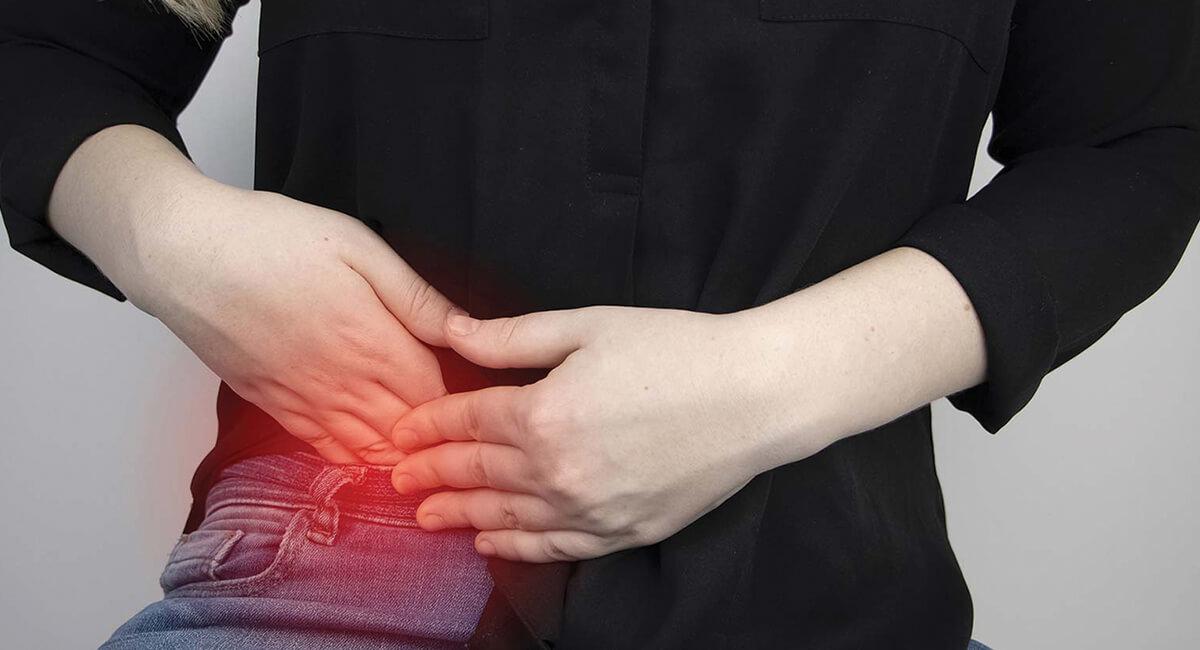
Introduction
Colitis is a general term for an inflamed colon. Several conditions (like infection and autoimmune disorders) can cause colitis. These causes differentiate colitis into types.
Colitis means inflammation of the colon. The colon, a part of your intestine, is a muscular tube responsible for absorbing water and electrolytes from the food and processing waste. The colon connects to the rectum to expel waste products as your stool.
Several tissues line together to form the colon. The innermost mucosal layer is in close contact with food and absorbs nutrients. The outer muscular layer rhythmically contracts to squeeze the nutrients out of food and move the food along to your rectum. In colitis, often, the inner mucosal layer gets inflamed and causes problems.
Request an Appointment at Smiles
What Causes Colitis?
- ● Ulcerative colitis: Ulcerative colitis (a type of inflammatory bowel disease) is the most common colitis diagnosis. Ulcerative colitis causes inflammation and ulcers within the mucosal layer of the colon. It involves the rectum and extends to the colon as it progresses. Your body overreacts to the naturally present bacteria in your gut resulting in ulcerative colitis.
- ● Pseudomembranous colitis: The use of antibiotics, especially cephalosporin and beta-lactam antibiotics, destroys the good bacteria in your gut. Clostridium difficile, otherwise balanced by the good bacteria, overgrows and releases toxins. These toxins increase the presence of pseudomembranes (mucin, fibrin, and other necrotic cells). It causes inflammation of the colon.
- ● Ischemic colitis: Restricted blood flow to the colon results in ischemic colitis. Blood clots (due to atherosclerosis) can cause ischemia. Other underlying conditions – vasculitis, diabetes, colorectal cancer, and trauma – also interfere with the blood supply to your colon.
- ● Necrotizing enterocolitis:It is a common cause of colitis among newborns. Newborns (low birth weight and preterm) can be very susceptible to necrotizing colitis. The premature intestinal tract and presence of bacteria can influence inflammation in their colons. The inflammation can damage the mucosal layer. In this form of colitis, gas accumulates within the bowel wall. It can progress to necrosis (cell death) and increase the risk of bowel perforation, inflammation within the abdominal cavity, and sepsis.
- ● Allergic colitis: It also occurs in newborns and infants. Allergic colitis is often due to hypersensitivity to milk. Complex proteins enter the child’s system through breast milk after the mother drinks milk. Dietary modification to the mother’s meals (avoiding dairy, eggs, and wheat) can improve the child’s condition.
- ● Infectious colitis: Infections due to bacteria, viruses, and parasites can cause colitis. E.coli infection is known to cause colitis in children.
What Are the Symptoms of Colitis?
- ● Pain or cramping in your abdomen
- ● Bloating
- ● Diarrhea
- ● Bloody stools
- ● Increased urgency for bowel movements
- ● Sudden unexplained weight loss
- ● Fever
- ● Occasional nausea and vomiting
How is Colitis Diagnosed?
- ● Lab tests: Blood tests can measure the blood cell count and electrolyte levels. Stool samples can detect the presence of blood and provide information regarding bacterial and parasitic infections.
- ● Imaging tests: Imaging studies like ultrasound, MRI, and CT scans allow scanning the intestine for any abnormalities. A barium enema X-ray makes the inner surface of your colon more visible.
- ● Colonoscopy: A colonoscopy provides a better view to confirm the diagnosis of colitis. Also, it permits the doctor to biopsy the tissues of your colon.
- ● Colitis treatment: Treatment for colitis depends on its cause. The initial treatment aims at stabilizing the vital signs and rehydrating. If you are unable to take fluids orally, an intravenous fluid replacement can help.
- ● Medications: Medications like anti-inflammatory drugs can help you manage your pain and swelling. Additionally, antispasmodic drugs can relieve the pain caused by cramping. If the infection is the cause of colitis, antibiotic treatment can help resolve your symptoms.
- ● Bowel Rest: In necrotizing and ischemic colitis, a bowel rest can allow the colon time to heal itself. You will have to avoid consuming food orally; an intravenous line will provide the necessary fluid and nutrition.
- ● Surgery: If all other forms of treatment fail, surgery can provide some relief. In case of necrotizing colitis, surgery can resect the dead portion of your colon.
What is the Outlook for patients with Colitis
What are the Risk Associated with Colitis Treatment?
- ● Abscess within the abdominal cavity
- ● Anastomosis leak
- ● Wound infection
- ● Prolapse of pelvic organs
- ● Injury to the surrounding organs and blood vessels
- ● Adhesions within the abdominal cavity
Request an Appointment at Smiles
FAQ's
Is an Inflammation of the Colon Serious?
Can Inflammation of the Colon Go Away?
How does Colitis Stool Look?
How does Colitis Pain Feel?
How Long does it take for Intestinal Inflammation to Heal?
Need Help?
For any Information about our Locations, Doctors or Treatments.
